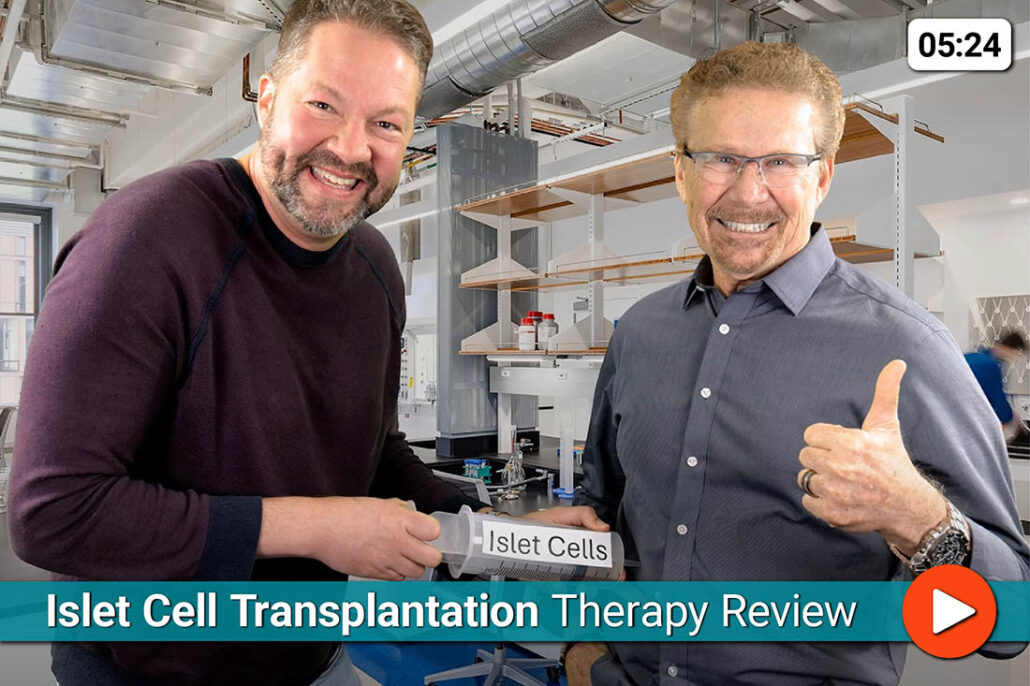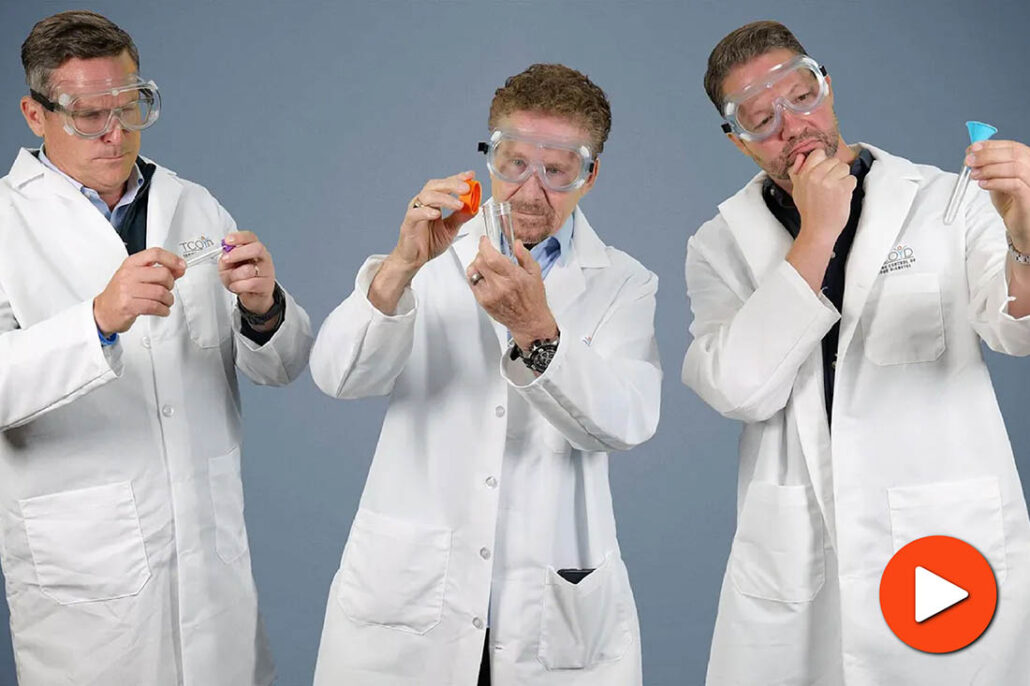What to Do IMMEDIATELY After Type 1 Diabetes Diagnosis (Save Those Beta Cells)
Essential Strategies for Newly Diagnosed Patients to Maximize Remaining Insulin Production and Reduce a Risk of Diabetes Complications
In this video, you will learn about the following:
✔ Why early identification of remaining beta cell function at diagnosis is clinically significant
✔ Action steps for healthcare professionals when supporting patients in the initial phase of type 1 diabetes
✔ The impact of timely patient education and referral to type-1-experienced providers
✔ Current insights on tight glucose control and proactive technology adoption—CGMs and hybrid closed-loop systems
✔ Guidance on discussing clinical trial options with newly diagnosed patients and their families
Early in the course of type 1 diabetes, many patients still have functioning beta cells. Preserving this residual endogenous insulin production can improve glucose management and reduce the risk of future complications. In this video Drs. Edelman and Pettus outline actionable steps for healthcare professionals to consider during this initial period, including the implementation of continuous glucose monitoring, engaging patients in timely education, and facilitating referrals to providers with expertise in type 1 diabetes management. They also share current knowledge about preservation strategies and clinical trial opportunities, equipping clinicians to effectively communicate the potential value of beta cell preservation and to ensure patients receive coordinated, well-rounded care from the beginning.
Explore this topic more!
Can Type 1 Diabetes be Cured with Islet Cell Therapy?
Endocrinologists Dr. Steve Edelman and Dr. Jeremy Pettus reveal how islet cell transplantation could cure Type 1 diabetes by replacing destroyed insulin-producing cells with synthetic ones. This breakthrough overcomes previous limitations of cadaver donors, making treatment scalable worldwide.
Type 1 Diabetes: New Horizons in Treatment, Prevention, and Cure
Delve into the latest research across three game-changing areas: advanced technologies, disease-modifying therapies, and cellular replacement. From automated insulin delivery to potential cures, this video unpacks the innovations that could revolutionize life with T1D. Gain valuable insights from experts who bring both professional knowledge and personal experience to the conversation.
Islet Cell Replacement Therapy, with Manasi Sinha Jaiman, MD, MPH
Islet cell replacement therapy represents a promising advancement to cure type 1 diabetes. In this episode of the Taking Control of Your Diabetes podcast, our special guest, Dr. Manasi Jaiman, MD, MPH, a leading pediatric endocrinologist and diabetes researcher, joins hosts Dr. Jeremy Pettus and Dr. Steve Edelman to delve into the intricacies of stem cell research and its potential to transform diabetes treatments.
How do you approach conversations with newly diagnosed type 1 patients to address both immediate treatment needs and future health planning? Share your experience in the comments below!
© 2025 Taking Control Of Your Diabetes® | Taking Control Of Your Diabetes® is a 501(c)(3) Nonprofit Charitable Educational Organization, Edutaining the Diabetes Community Since 1995.
**We love sharing the latest and greatest in diabetes education, but we are not your doctors! All of the information on our website, in our videos, on our podcasts, on our social media platforms, and in any other current or future communication method is for the purposes of general education only. Please do not post personal medical information on this platform. Always consult with your medical team for testing, diagnosis, treatment, and medical advice before making any changes to your healthcare. AND if you think you are having a medical emergency, call 911**





Hi I am inquiring for my son who recently got diagnosed with type 1 diabetes
Hi there,
Did you have a specific question about preserving beta cell function?
Would love more info on preserving beta cells
I am 62 years old and when I was 57 I was diagnosed as type 1. I’ve been a runner for over 40 years and when I started to slow down on my running this is when I got diagnosed. Hopefully you can share more information to me.
You shouldn’t have stopped running! Just kidding. Starting or stopping running does not cause type 1 diabetes. It’s an autoimmune condition that happens when your immune system mistakenly attacks and destroys the insulin-producing beta cells in your pancreas. Listen to this podcast on the science of type 1 diabetes and check out the article below to understand more about the stages of type 1 diabetes:
https://tcoydthepodcast.transistor.fm/4
https://tcoyd.org/2023/10/i-screen-you-screenwhy-everyone-should-be-screened-for-t1d/
What is the trigger that starts the attack of the Auto-Immune response,? How to reverse?
That is an extremely insightful question. With all the research, we do not know what the inciting event is that leads to the production of autoantibodies. And I mean, no clue. If we did, we might be further along in finding a cure. And that would be the ultimate cure. We can produce islet cells and they say that’s a cure, but to prevent the destruction of the beta cells in the first place would really be an early cure.
Don’t forget that some Internal Medicine snd Family medicine doctors have extra training in advanced diabetes care. Some even fellowship trained or board certified in Diabetology. Look at the Am College of Diabetology website.
That’s true – thanks Sarah!
What about using GLP-1 agonists in early T1D with adequate c-peptide production. I have seen published papers that this is useful and have found it useful in my patients not yet requiring insulin to treat post prandial hyperglycemia.
Absolutely, it’s a great strategy. You’re way ahead of your time. Getting it past insurance companies is the biggest challenge. Jeremy and I do the same thing on occasion.
Can you call me cause I have some questions of starting this and not taking my medicine
701-389-1553
Would love more info on preserving the beta cells. My daughter used Tzield, but is now on long acting insulin.
Can you direct me to more specific trials?
Hi there,
All active trials are listed on the following website:
https://clinicaltrials.gov/
You can search for beta cell preservation specifically.
Just saw this listed on diaTribe – might be worth exploring!
https://diatribe.org/diabetes-research/join-trial-testing-autoimmune-drugs-slowing-type-1-diabetes-progression?omhide=true&utm_source=diaTribe&utm_campaign=b6258f4b15-EMAIL_CAMPAIGN_2025_07_14_08_13_COPY_01&utm_medium=email&utm_term=0_-e42c070d76-152632769